Colmar The special connection at the sister of freedom
Bonjour,
I’m delighted that you’ve joined us for another piece in Florian’s travel mosaic.
Our route today takes us west across the Rhine to our neighboring country of France, the European region of Alsace, to the town of Colmar.
I have visited Colmar several times over the years and would like to show and tell you about it today.
Come with us and escape from everyday life to the land of wine and perfume, to quieter places and a world that you don’t get to see every day.
But all in all, I think that’s exactly what it is for me. This wandering through history, with little glimpses and beautiful motifs on every corner away from the larger and louder cities like Strasbourg.
Things to see in Colmar and insights into its history
Of course, due to the multitude of possibilities on our tour, our city trip, I can only go into the points that were special to me during my wanderings.
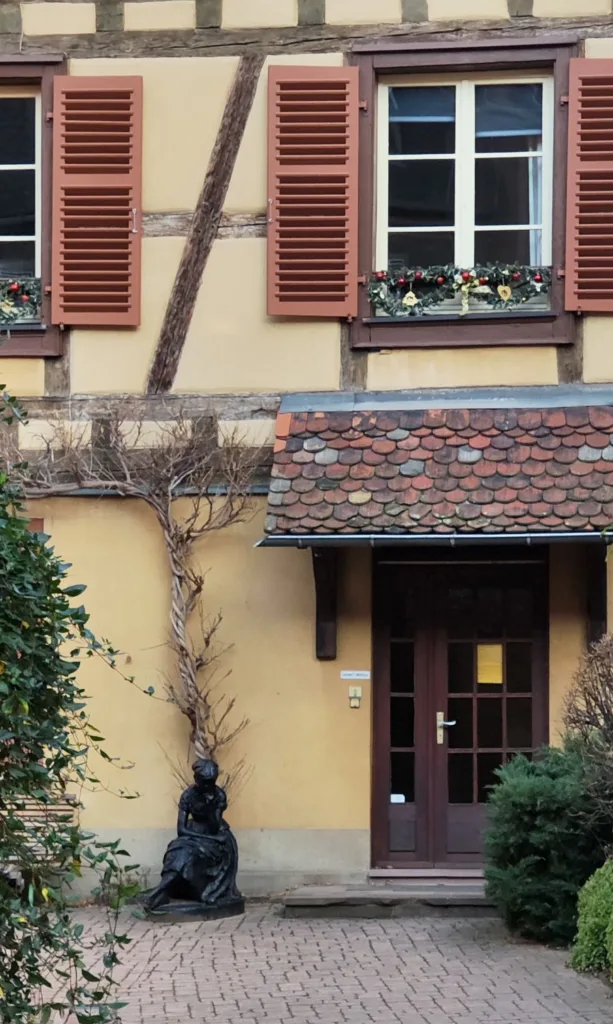
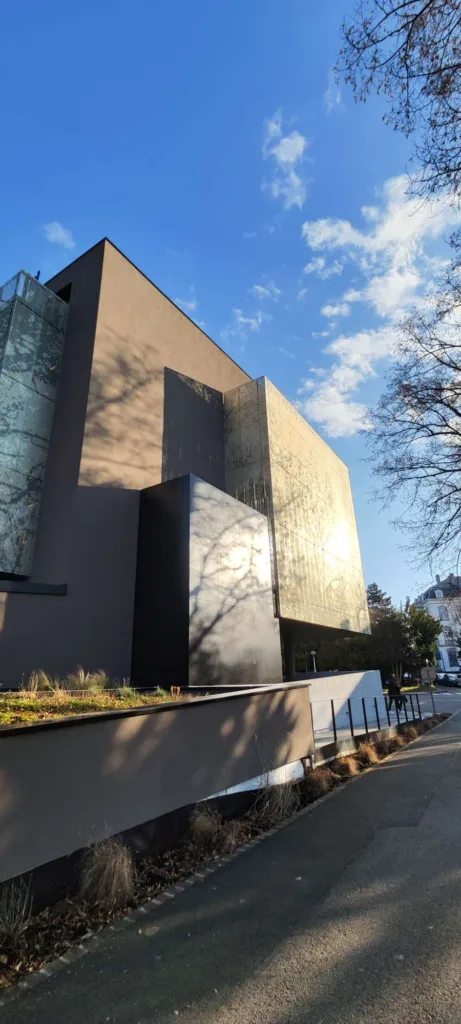
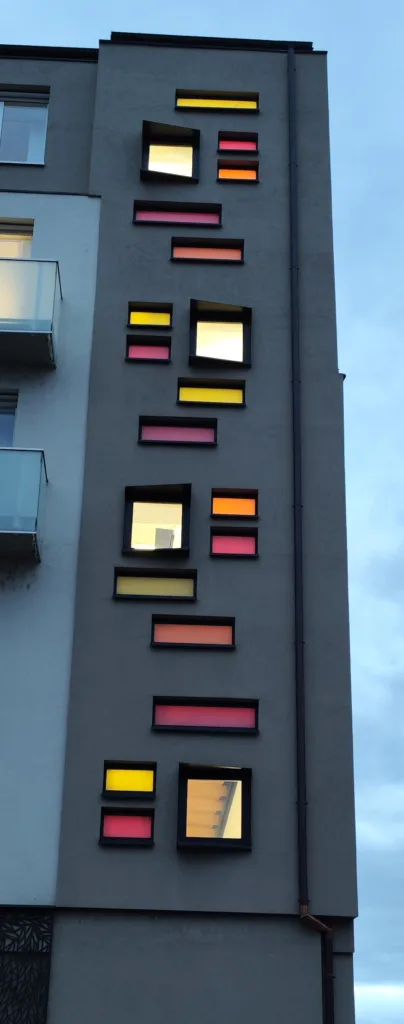
The location and significance
Colmar is located in Alsace in the Grand Est region of the French Republic at the confluence of the Ill and Lauch rivers.
The city is the third largest city in Alsace after Strasbourg and Mulhouse and also likes to call itself the capital of Alsace wine.
Tourism is of course an important aspect of Colmar, but large international companies are also based here and Colmar has its own institutes at the University of Mulhouse-Colmar, so there are also study opportunities here.
Colmar is home to an airport of regional importance, but is also not far from the international airports of Basel-Mulhouse and Strasbourg.
The city is also part of a partnership group of four cities, together with Lucca (Italy), Sint-Niklaas (Belgium) and Schongau (Germany).
Colmar The special connection …
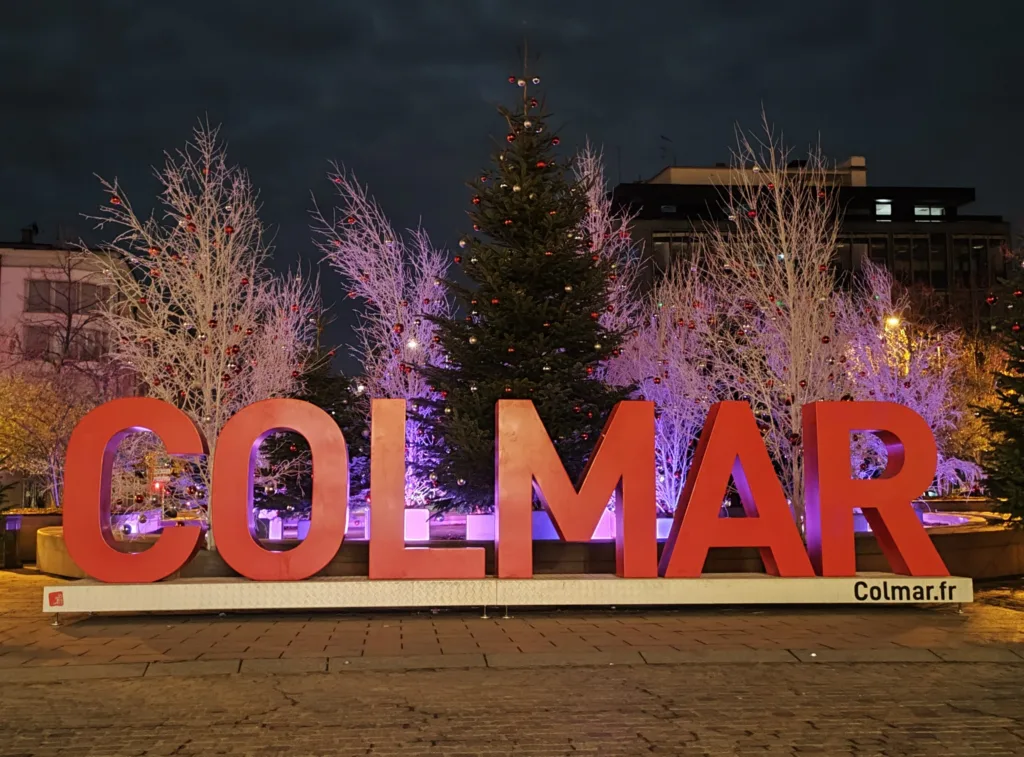
In my opinion, Alsace occupies a special place in the center of Europe. Not only because of its culture, its wine and its food.
It also has a character all of its own, which I believe it has always retained to a certain extent despite the upheavals of history.
In the course of history since the partition after the death of Charlemagne in the 9th century, but especially in the Middle Ages, Alsace has repeatedly been the bone of contention between the French and Germans.
If one side won a war or negotiated a treaty, Alsace went to that side. If the flag of war flew in the direction of the other side, the sovereignty changed hands again. The whole thing only ended with the end of the Second World War.
But with these possessions gained and lost again, settlers kept coming or people left their mark on the region, making it a mix of French and German influence and thus giving it its very own character.
A little anecdote
Leave the A5 in Germany and drive from Breisach over the Rhine bridges to Marckolsheim.
If you don’t know the two cities, you might think. Well, you just drive from one German town to the other. But that’s not the case – Marckolsheim is on the west side in France.
In particular, the ending “Heim” for house appears again and again in the region. The next town has a French name and so on.
The streets almost all have French names at the beginning, such as Rue or Boulevard. But there are many streets that use German words afterwards.
That comes from the names of the people. If you read through the list of the town’s most famous people, as in Colmar, you will find both classic German and French names.
Sometimes even this is connected, e.g. French first name, German surname.
I am therefore always pleased that the French state has declared the region a European region and thus demonstrates and actively and officially supports the solidarity here in the center of Europe through cooperation and projects.
That’s why Colmar, like the other areas of Alsace, represents for me not only a historical but also a current connection between the French and Germans and perhaps also offers a glimpse of the future vision of a united Europe.
… with the sister of freedom
Speaking of the most important people in the city.
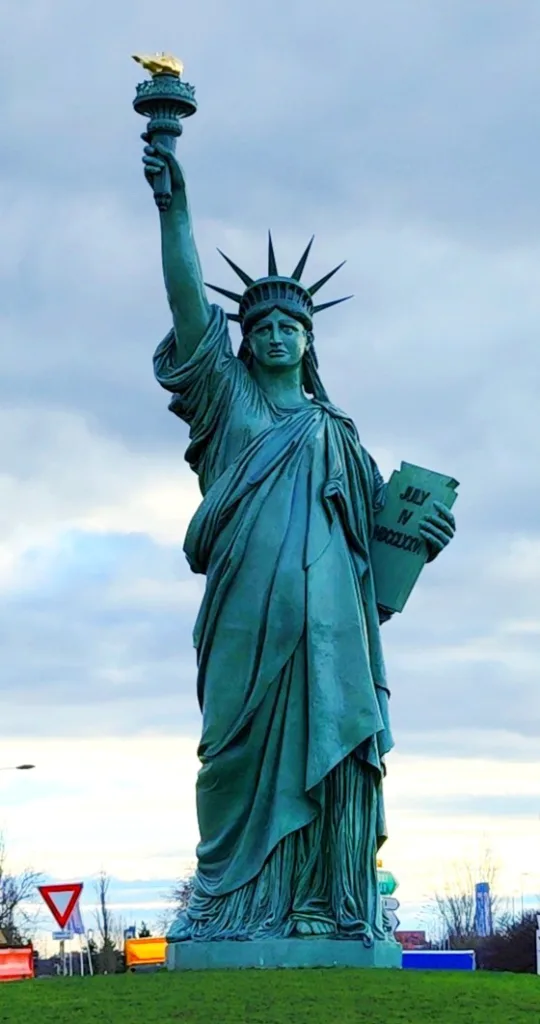
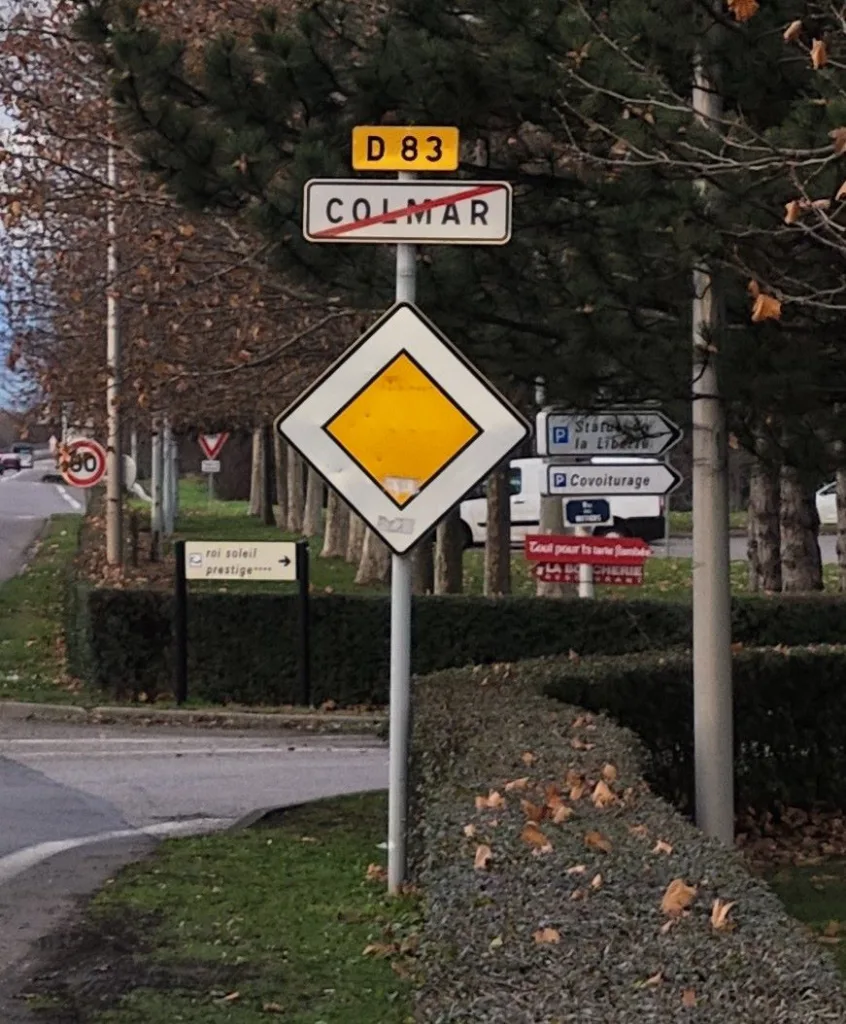
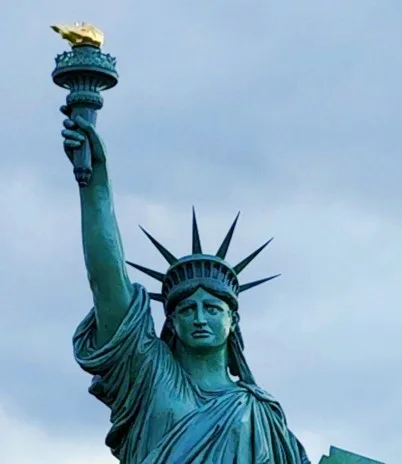
If you approach the city from the north, you will come to a large traffic circle.
At first, you might still be thinking, but I immediately noticed the large statue on the traffic circle.
A 12-meter-high statue, a copy of the Statue of Liberty in New York, stands at the entrance to Colmar and welcomes the arriving people.
What is it all about?
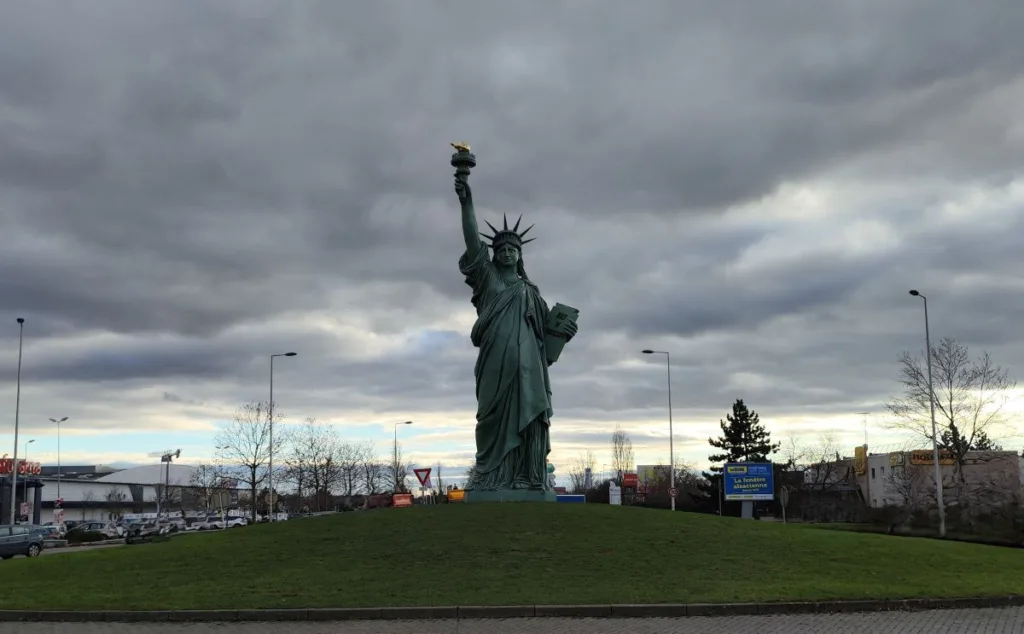
The statue was erected in 2004 to honor the 100th anniversary of the death of Auguste Bartholdi, the sculptor who designed the original Statue of Liberty in New York.
Bartholdi was born in Colmar in 1834, which is why the town has a close connection to his most famous work.
It is a tribute to Bartholdi’s significant contribution to art and, like the statue in New York, symbolizes freedom and enlightenment.
That’s why I gave her the nickname “the sister of freedom”.
Interestingly, the replica in Colmar is made of plastic, in contrast to the copper of the original Statue of Liberty.
While the copy in Colmar is smaller, it remains an important landmark of the city and a reminder of Bartholdi’s artistic legacy.
So if you fancy the Statue of Liberty, you can also find its little sister here in Europe.
The train station – La Gare de Colmar
The Colmar train station (“Gare de Colmar”) is located directly opposite the lettering and opposite the Hotel Bristol on the station square.
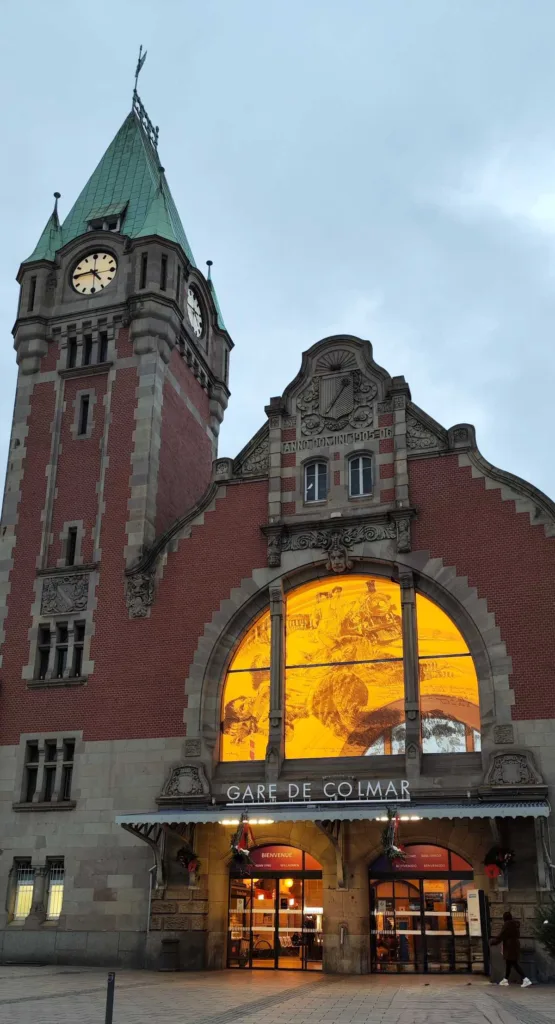
The clock tower is one of the most striking elements and gives the station a special look.
It was built between 1905 and 1907, when Alsace was part of the German Empire, which is why its architecture is typical of the Wilhelmine style.
Today, the station has been modernized and is a central point of contact for travellers wishing to visit Colmar.
From here, there are connections to larger cities such as Strasbourg, Basel and Paris, as Colmar is also connected to the high-speed rail network (TGV).
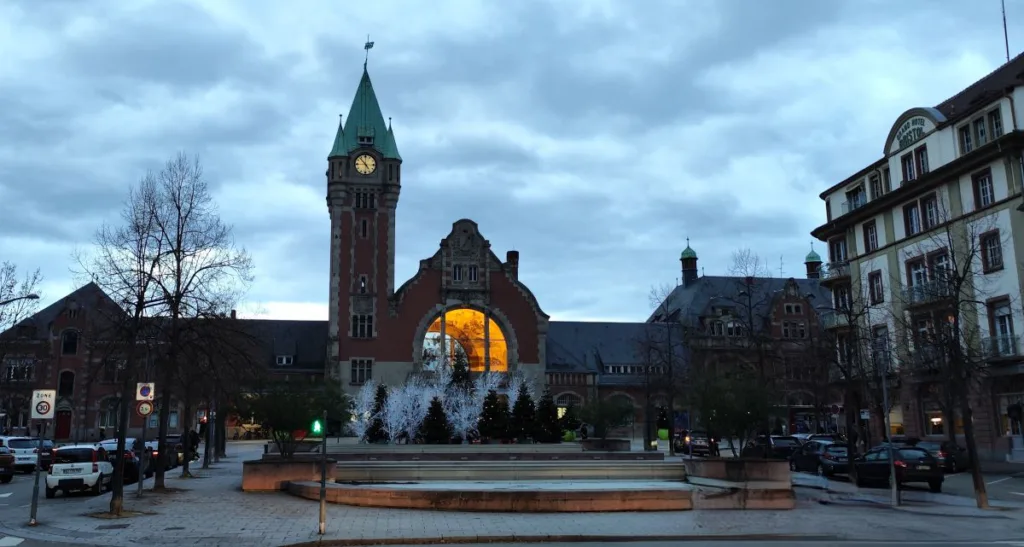
In addition to its function as a transportation hub, Colmar’s train station is also an architectural landmark of the city, reflecting the eventful history of the region.
La Maison Pfister
If you stroll through the old town, you will come across La Maison Pfister, or the Pfisterhaus in German, at its heart.
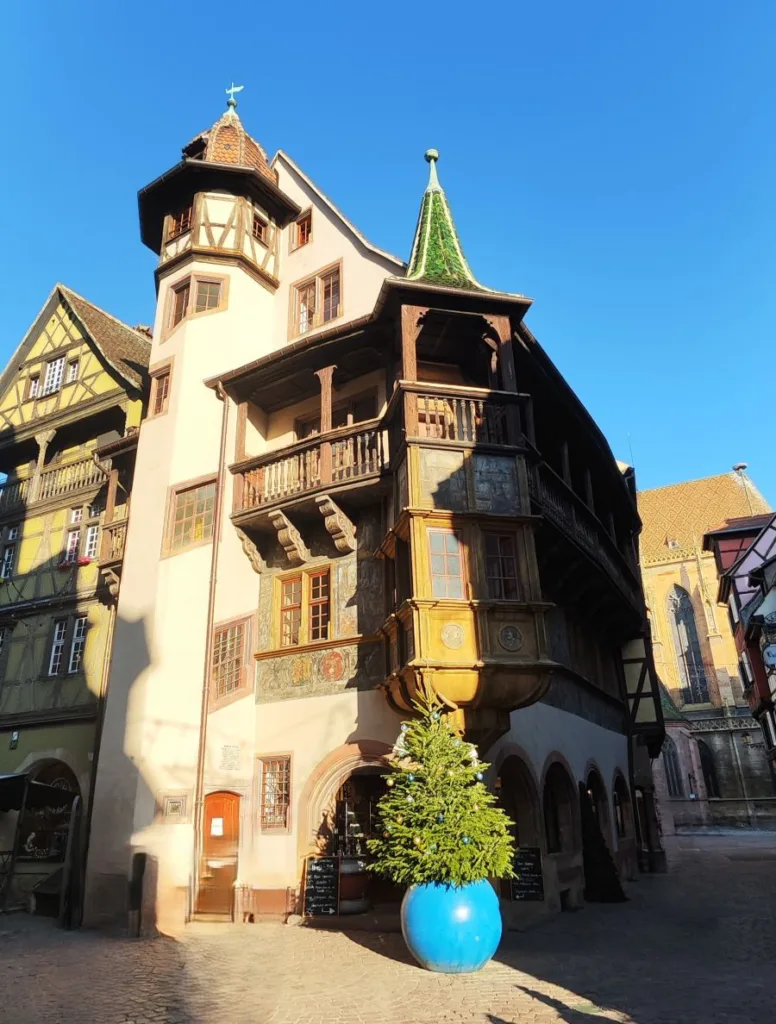
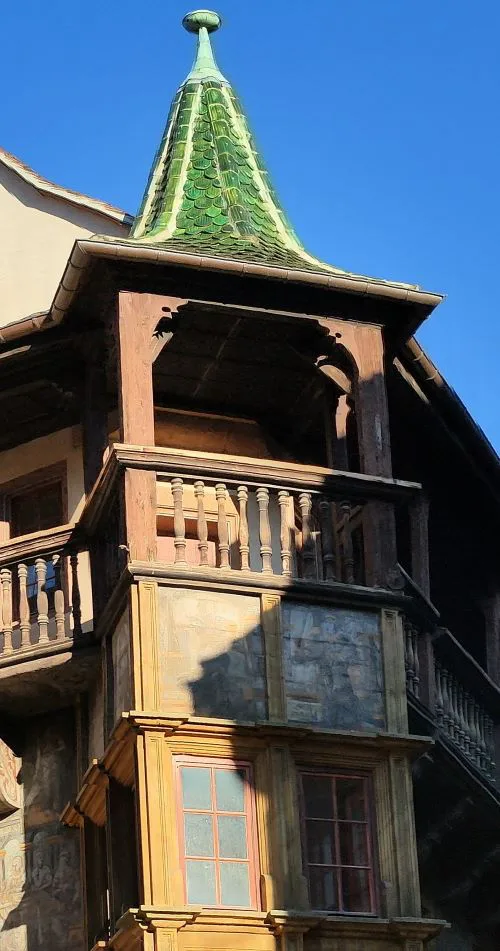
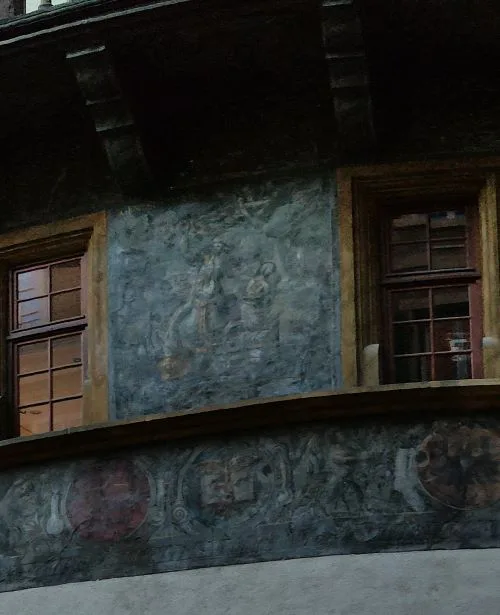
As I think you can clearly see, it is rightly one of the most famous and impressive buildings in Colmar.
The house is an outstanding example of Renaissance architecture in Alsace, although it also has Gothic elements.
It was built in 1537 and is named after Ludwig Pfister, a hatter who bought the house in 1841 and whose name has been associated with the building ever since.
So the house had been standing for over 300 years before it was given its current name.
I find that exciting.
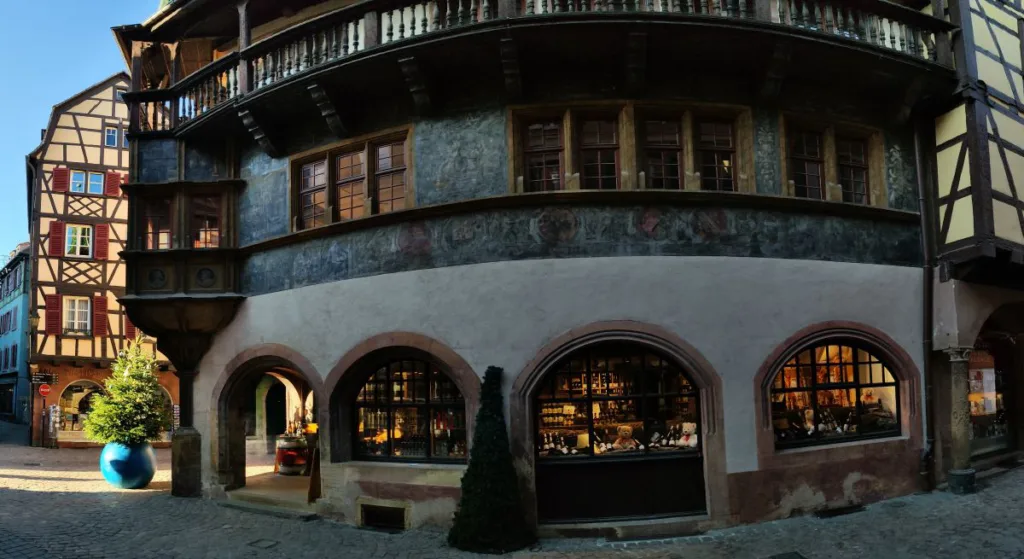
The building originally served as a residence for the wealthy cloth merchant Ludwig Scherer, who had made his fortune through the spice trade.
The richly decorated façade, on which painted scenes from the Bible, holy and allegorical figures can be seen, gives the building a valuable touch in my opinion.
I found the wooden, tower-like bay window, which extends over several storeys and gives the house its unmistakable character, particularly interesting.
It also has a corner balcony and a striking slate roof.
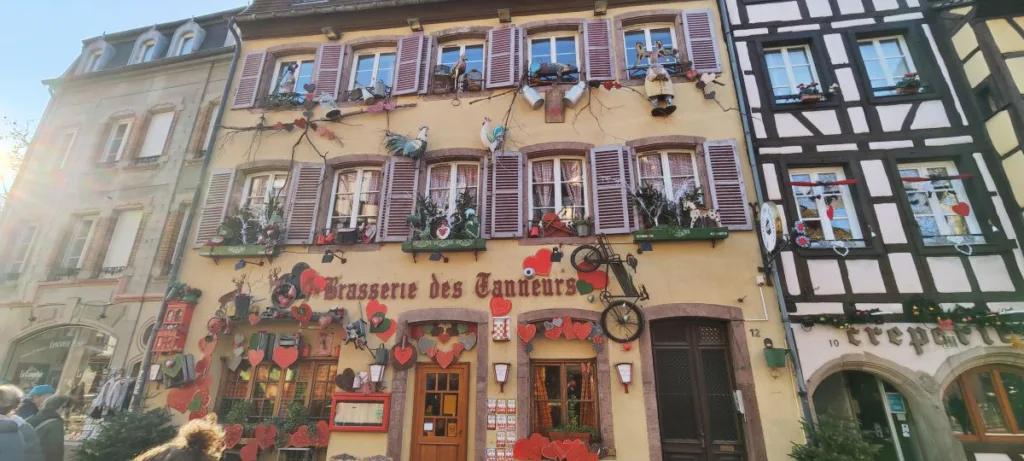
Today, the Maison Pfister is a landmark of the town and a place to go for tourists who want to enjoy the historical flair of Colmar.
Although the building is unfortunately privately inhabited and cannot be visited, you can view its ornate architecture and the history it represents from the outside.
There is also a store on the first floor where you can get an impression of the interior of the building.
I have looked at it intensively. It is recommended for anyone looking for a motif.
In my opinion, it is a very lively place where local producers offer their fresh and delicious goods.
Here you will find everything your heart desires: from Alsatian specialties such as tarte flambée, sauerkraut and Munster cheese to fresh fruit, vegetables, meat, fish and wine from the region.
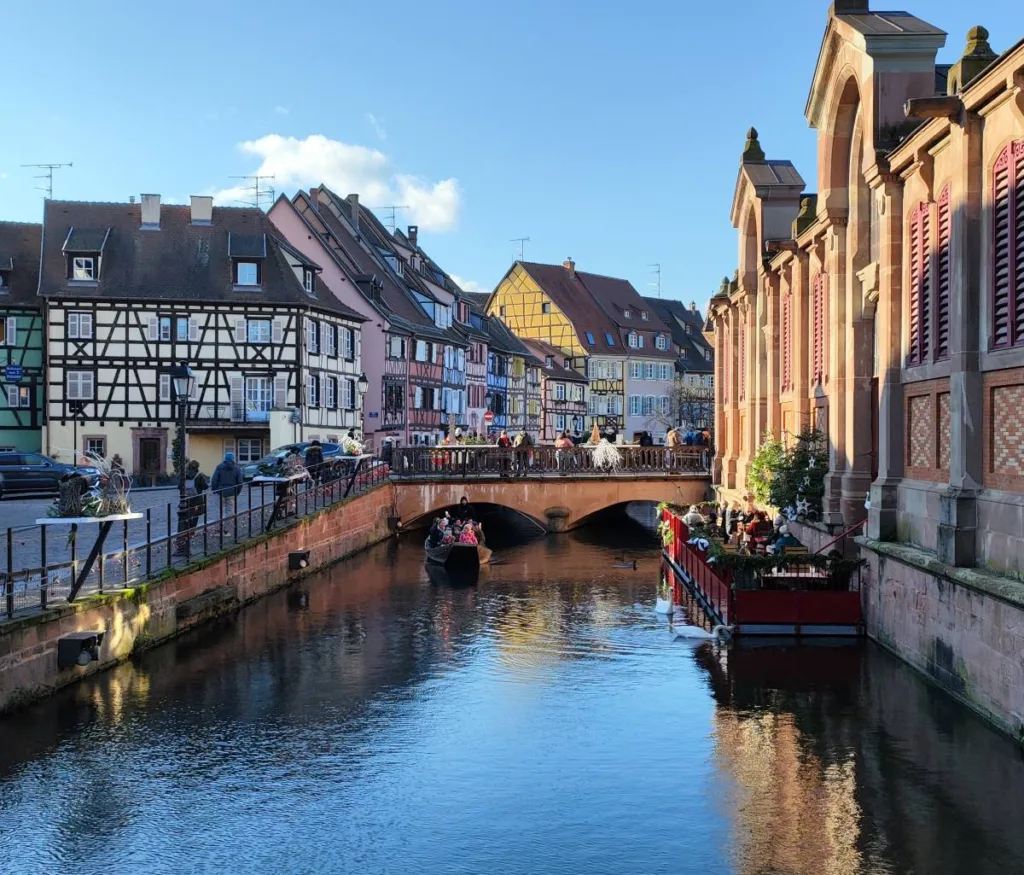
The atmosphere is particularly authentic and you can enjoy the hospitality and charm of Alsace to the full.
The historic building is located in the old town of Colmar, not far from the famous “Petite Venise” (Little Venice) district.
In addition to the food stalls, there are also cafés and small bistros where you can take a break and sample regional delicacies.
Forays into Little Venice – Petite Venise
The part of the old town known as Little Venice is also highly recommended.
I don’t want to draw any comparisons with the great Venice. But I think this area has a special charm.
You walk along canals through alleyways, past beautiful and well-maintained old houses and can be transported back to the past of medieval trading towns.
Take your time for the old town of Colmar, I can only recommend everything mentioned.
The Dominican Church
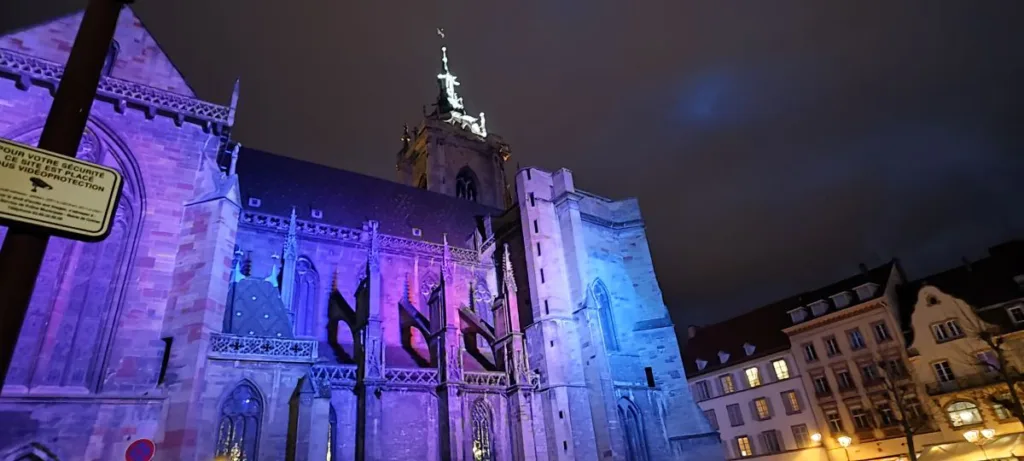
When we are out and about in the old town, we come across what I think is a magnificent building, the Dominican Church.
It was built in the 13th century by the Dominicans, a mendicant order dedicated to preaching and teaching.
Its simple but impressive construction reflected the ascetic ideals of the order.
When you enter the church, you immediately notice the high interior and the painted windows. As with some other churches, I am often struck by the feeling of being tiny.
However, the church is particularly famous for housing one of the most important works of art of the Middle Ages: the “Madonna im Rosenhag” by Martin Schongauer, one of the most famous painters and engravers of the 15th century.
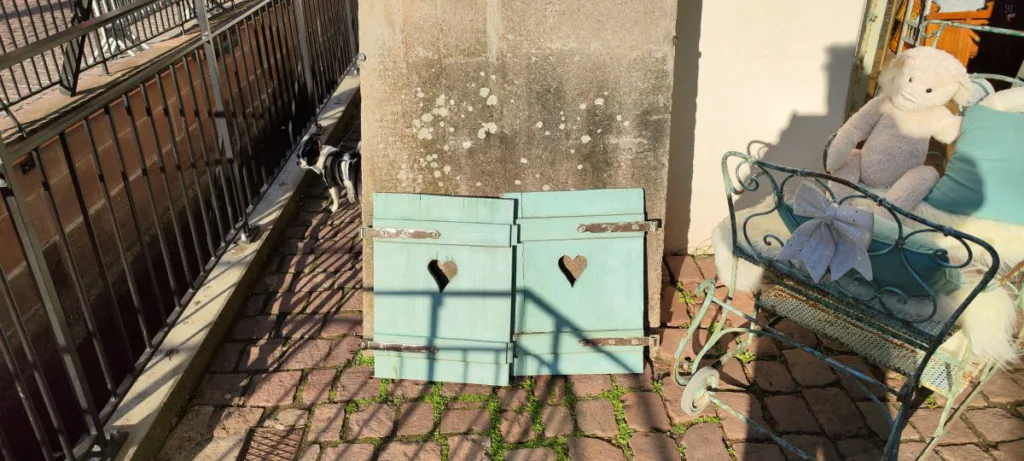
This altarpiece depicts the Virgin Mary with the Christ Child, surrounded by a rich gilded rosary.
In my opinion, this splendor is even more striking, as the church itself was kept rather simple in keeping with the ideas of the edifying order.
The church was once part of a monastery, of which only a few remains can be seen today.
The Parc du Champ – de – Mars
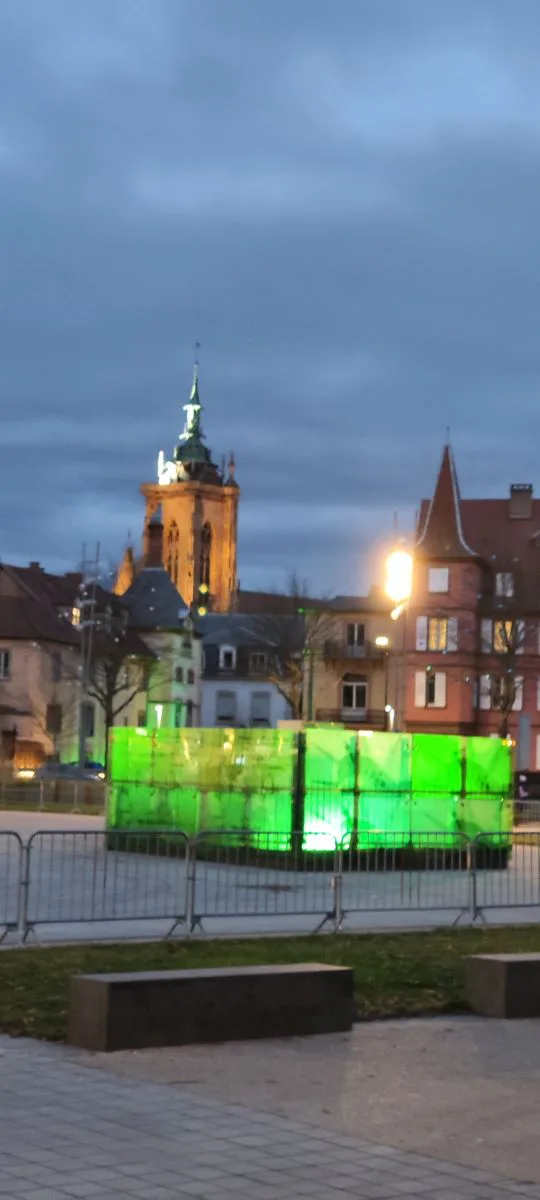
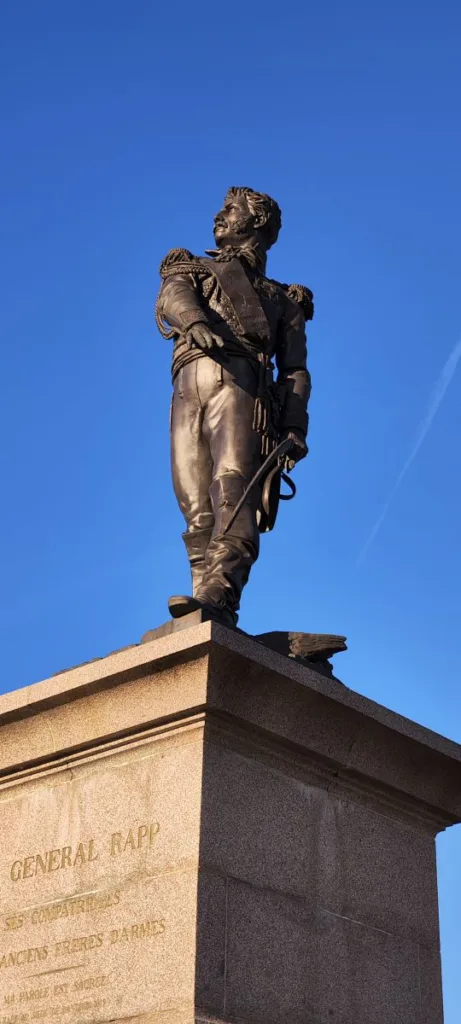
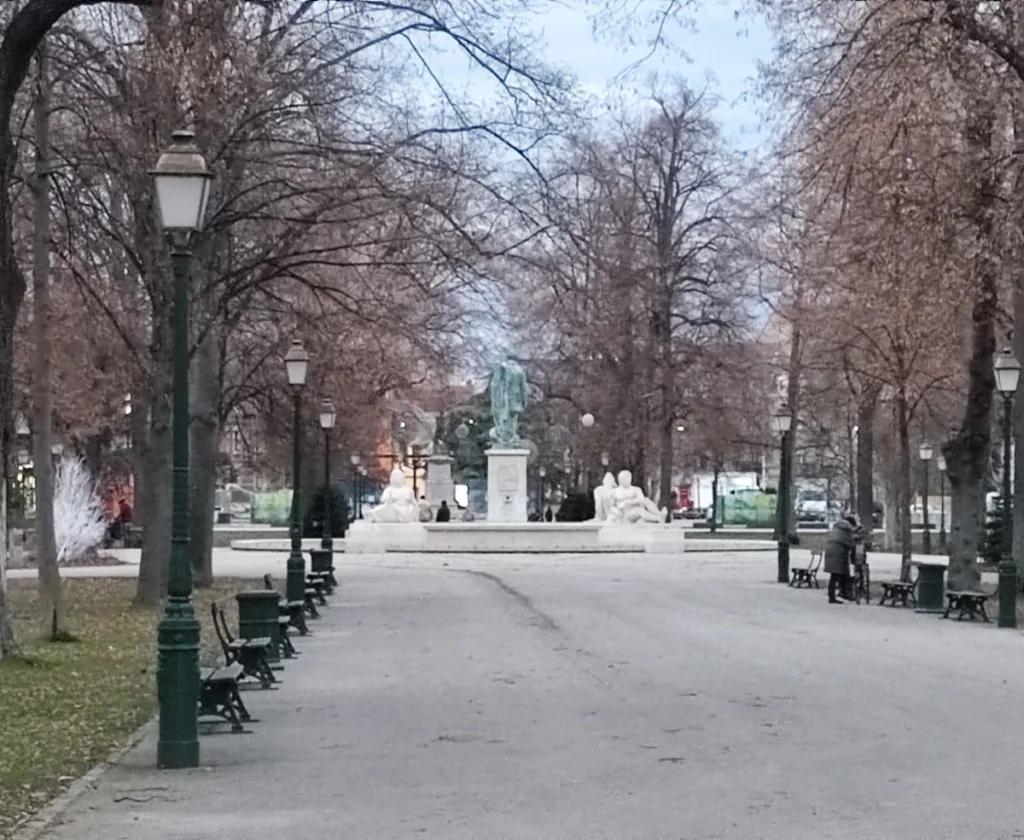
If you want to take a break from the hustle and bustle of the old town, I can highly recommend the Parc du Champ-de-Mars.
Not only does it have a beautiful music pavilion, but I also think it has an impressive fountain with a statue of Jean-Baptiste Kleber, an Alsatian officer of the French Revolution who fell on Napoleon’s Egyptian campaign.
I think the park is beautiful, you can take a leisurely stroll there and just let your mind wander or sit on one of the widely scattered benches, not far from the city center and the old town.
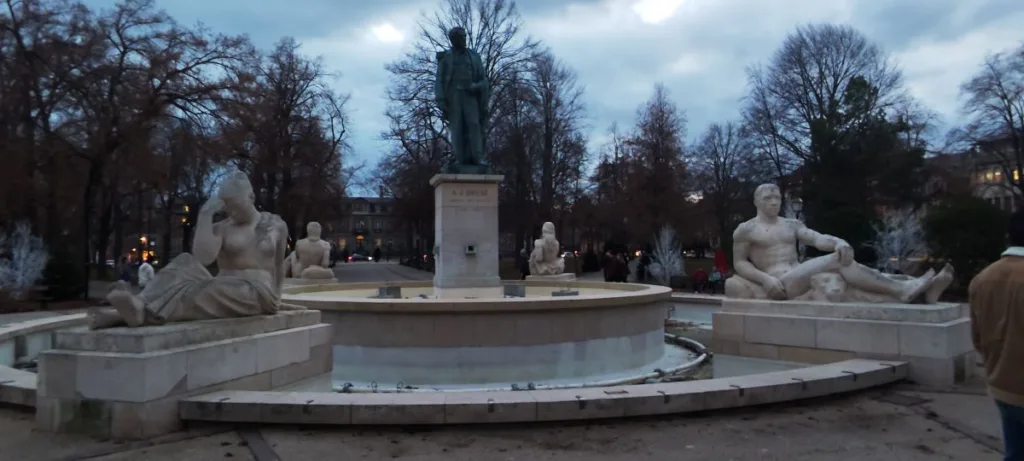
A piece of history and nature in the city.
Tips for your trip
Here are a few personal and culinary tips for you and your city trip to the city on the Lauch.
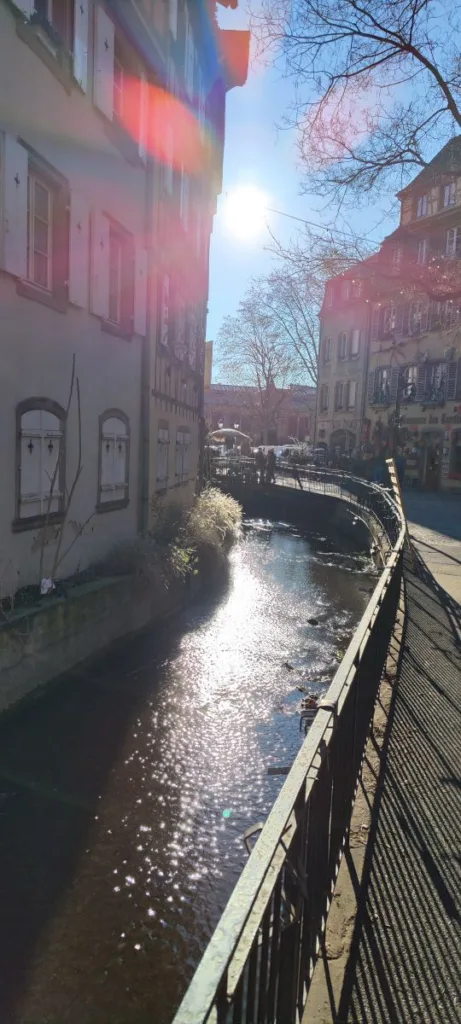
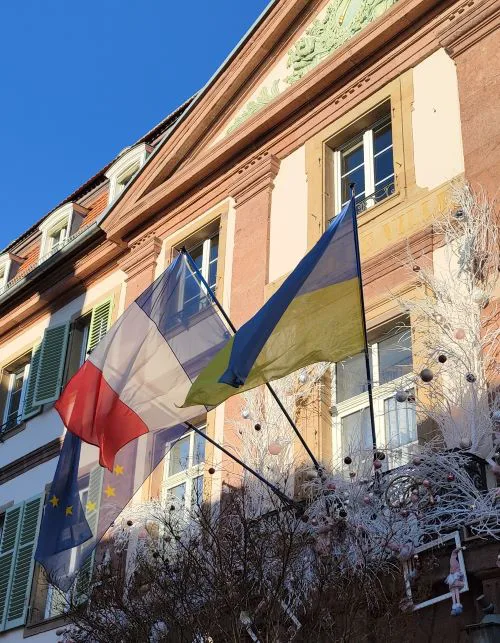
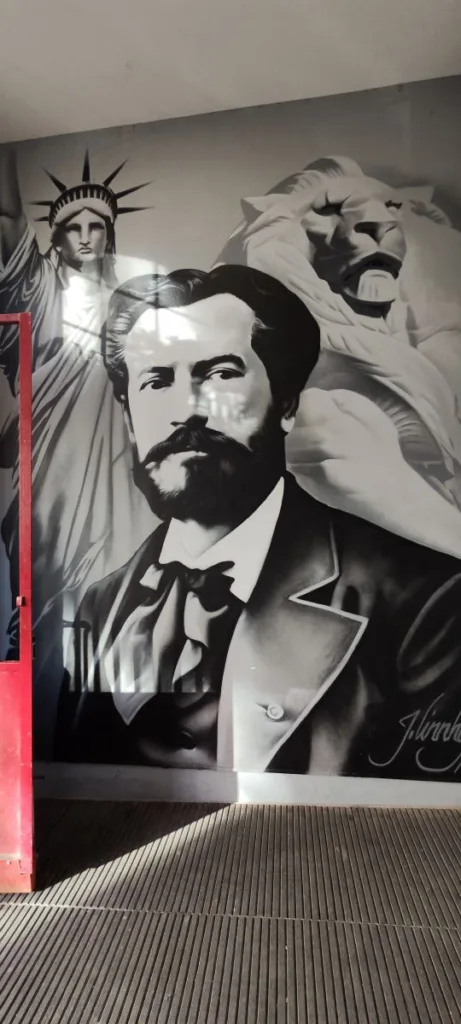
La Terasse du Marché
I can particularly recommend the restaurant la Terasse du Marché in Colmar. It is located right next to the market hall that we have already visited. If you step out of the hall to the side, you will come to the terrace, which is located directly on the Lauch.
You can comfortably enjoy a really good coffee here in the company of the swans and the slow-flowing leek.
Highly recommended.
Maison du Monde
Anyone who has been to France often knows Maison du Monde.
It is a company with a chain for furnishings. So it sells crockery, small furniture and similar items.
Why I mention it specifically is because of the location and layout of the store in Colmar.
The people there are very friendly and the store is really nicely decorated.
We bought plates and cups there, which we use all the time. You really get great quality at a fair price here. Also online, of course.
Highly recommended.
Conserverie La Belle-Iloise
If you walk through the old town, you will also pass this store.
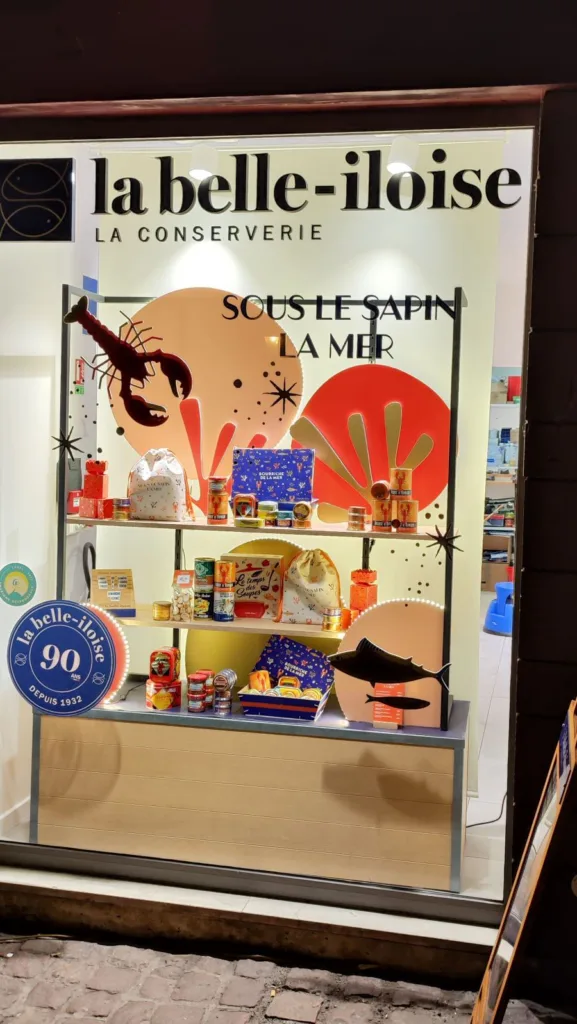
It doesn’t look that exciting at first, because the store contains canned goods. No fresh produce.
The price of canned fish is also somewhat higher than you would normally pay for fish.
But from my own experience, I can only say that the price-performance ratio is absolutely right.
The fish is of excellent quality and very tasty. And there are several sets with different types of fish and arrangements.
Try it if you like fish.
Hotels
In Colmar itself there are also many beautiful and interesting hotels, from budget to luxury class.
Some of these are also housed in historic buildings, like ours, which I will come to in a moment.
If you are interested in the surrounding area, you will almost always find nice hotels at fair prices in Alsace.
Grand Hotel Bristol
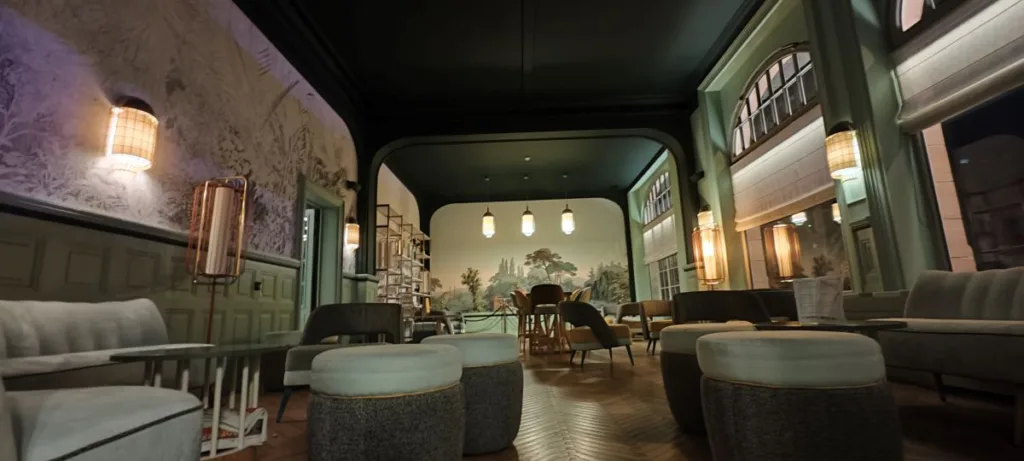
We enjoyed our stay at the Grand Hotel Bristol, directly opposite the train station.
I am happy to recommend this hotel. The building is historic, but in very good condition.
The rooms are, as usual in older buildings, small but nice, neat and clean.
The staff were polite and courteous, even when we wanted to go in after the reception had closed for the night.
The breakfast was also delicious and kept with local products, garnished with good service.
So if you are looking for good accommodation, I would be happy to recommend it.
Thank you for your attention and company on our tour at the Sister of Freedom.
Pleasant travel and many discoveries
wishes you
Florian
Have a look and follow me
My social media presence and interesting facts about me

